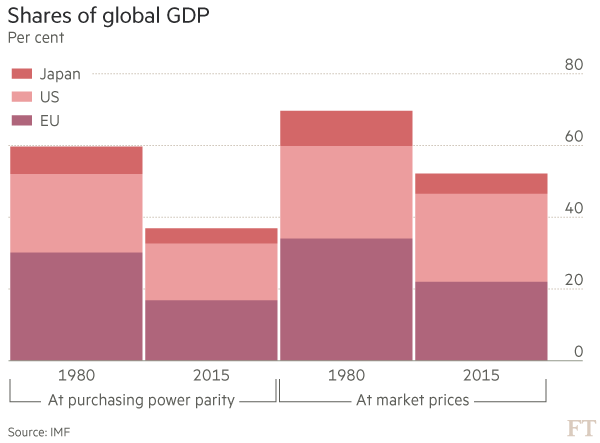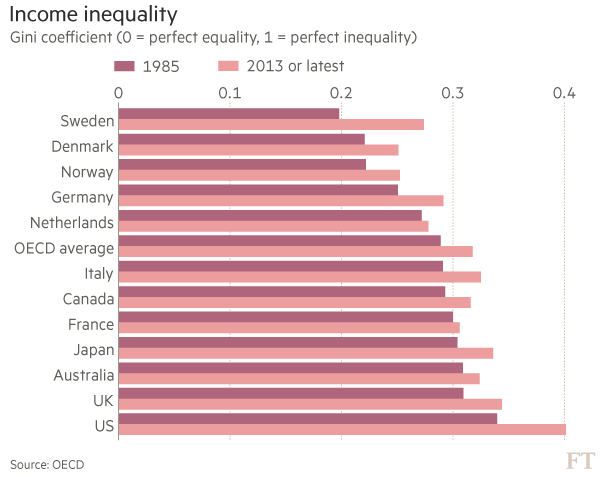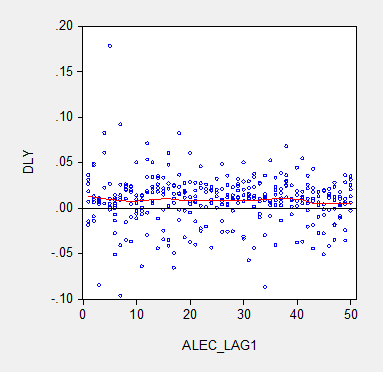The advance (first draft) news release comes out the last Friday of the month following the end of the quarter, around 6:30 Eastern time: so, early this morning.
The growth rate for that quarter was 1.9%. Positive, but not good.
Considering the population growth rate in the U.S., I typically assert that we have to exceed 2% to feel good about the economy. So we missed that.
But, this is just a quarter, and we also can’t really feel these things until we string a couple of quarters together.
That’s exactly what we’ve been doing, and that’s why we feel that the economy is underperforming. We did not reach 2% for 2016 as a whole, and we’ve missed that mark a few times over the last decade.
It used to be that real GDP growth for the U.S. averaged about 3.3% per year. But we have not hit that rate since the middle of the second term of Bush II.
In other posts from past years I argued that about half of the shortfall appears to be demographic in nature. The baby boomers are starting to retire in big numbers, and you’ve got to account for subtracting those people out of the labor force. This is because overall real GDP growth comes from the sum of growth of labor, growth of capital, and growth of technology. If the first one is lower, the whole sum will be lower.
The other half is more troublesome though. We seem to not be getting the growth from capital and technology that we should be. Is that because we’re not doing enough with what we’ve got, or is it because there’s something wrong with the capital and technology we have? No one is quite sure.
Now, something like half the country thinks we should blame Obama for this. Fair enough. Everyone is entitled to their opinions, but if we’re being serious about macroeconomics we have to support those opinions. So, an acceptable theory for a macroeconomist that leads to the conclusion that “it’s Obama’s fault” has got to include one or more of the following:
- We have enough capital but something is discouraging us from using it.
- We have better technology but something is making us stick with the older and less productive technology.
- We’re investing in capital, but it isn’t the right capital.
- We’re creating new technology, but it isn’t that useful.
Justifying any of those positions is tougher.







